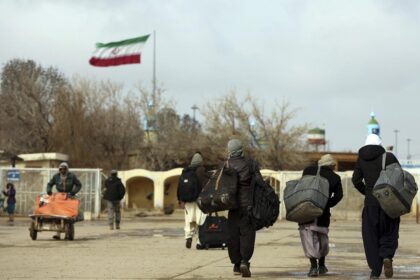RASC News Agency: A young man was shot dead in his own home in the Charbolak district of Balkh province, deepening nationwide fears over Afghanistan’s deteriorating security situation under Taliban rule. The Taliban’s provincial police command confirmed the killing, which occurred on Monday, April 28, but offered little clarity or progress on the case an increasingly familiar pattern in the group’s fragile and opaque security apparatus. According to Mohammad Isa Wasiq, spokesperson for the Taliban’s police in Balkh, the victim a 20-year-old male whose full identity has not yet been released was fatally shot with a handgun by unidentified armed individuals. The assailants reportedly entered his home and carried out the execution-style killing with impunity. No suspects have been detained, and no motive has been established. As with countless similar cases in recent months, the Taliban authorities claim that a “preliminary investigation” is underway, though history suggests the case will soon be forgotten, buried under the weight of systemic inaction and incompetence.
This incident is not isolated. Just one day earlier, four other homicides were reported across Kabul and other provinces. The surge in violence has fueled alarm among citizens and human rights groups, who warn that Afghanistan is slipping further into a state of unchecked criminality. Targeted killings, robberies, enforced disappearances, and mysterious deaths have become a regular feature of life under Taliban rule despite the group’s repeated pledges to restore national stability. The Taliban’s failure to deliver even the most basic form of law and order lays bare the hollowness of its claim to legitimacy. After seizing power in August 2021, the Taliban presented themselves as the guarantors of peace after decades of war. Yet, nearly four years into their de facto rule, Afghanistanis are witnessing a sharp rise in lawlessness, with a judicial system that is neither transparent nor accountable. Victims are routinely denied justice, and families are left with no answers as violence spirals out of control.
Worse still, critics argue that the Taliban’s security apparatus often functions less as a protector of the people and more as an instrument of repression, focused on silencing dissent, enforcing strict ideological controls, and policing morality rather than safeguarding citizens from criminal harm. With no independent oversight, no free media, and no impartial judicial recourse, Afghanistanis have little to no recourse in the face of brutality or impunity. The recent wave of killings shrouded in mystery and met with official silence highlights the Taliban’s deepening crisis of governance. Their inability to investigate or prevent such crimes reveals not only a breakdown in state functionality but a willful neglect of their responsibilities to the population.
As fear spreads and trust erodes, many Afghanistanis now see the Taliban not as a stabilizing force, but as a central factor in the country’s descent into insecurity and injustice.






